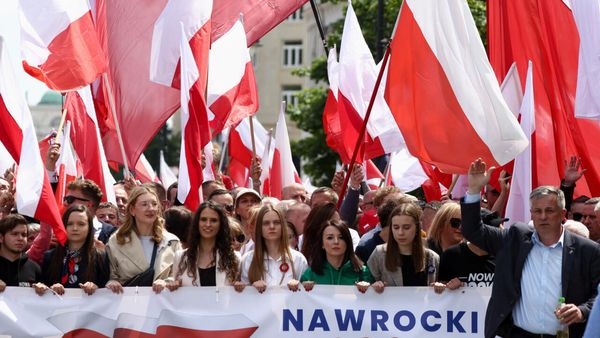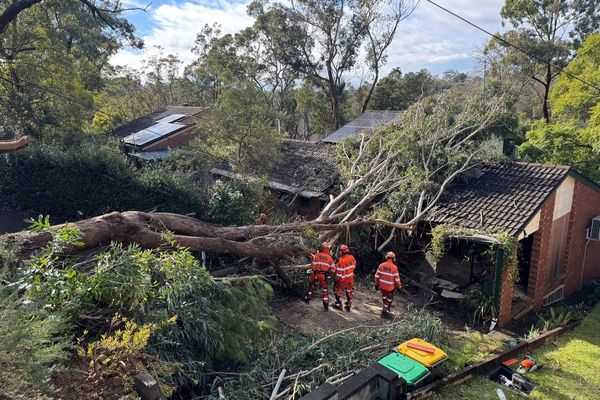AHEAD of a major trade union conference this weekend, the general secretary of the STUC has said that there is “commonality” between the trade union and independence movements and that “anyone who wants to see a more socially just Scotland has a common goal”.
Roz Foyer (below), general secretary of the Scottish Trades Union Congress (STUC), spoke to The National ahead of the Strike! conference due to take place in Glasgow on Saturday.
The conference aims to reflect on the lessons learned from the most recent wave of strike action, and will feature panel discussions around winning the ballot and looking ahead to the future.
When asked whether the trade union movement and the Scottish independence movement shared a common goal, Foyer said: “I think that anyone who wants to see a more socially just Scotland has a common goal.
“I would imagine that we would have a lot of commonalities with elements of the independence movement, not necessarily all of it.
“At the end of the day, the STUC very much supports the right of any decision on a future referendum to be taken here In Scotland, by the Scottish people, in the Scottish Parliament."
What lessons can be learned from the trade union movement?
Foyer acknowledged that the last year had seen an “unprecedented” level of industrial action taking place across Scotland.
The STUC announced on Friday that workers throughout Scotland had secured more than £4 billion in pay and pensions settlements in the past 18 months of industrial action.
Research found that had trade unions accepted employers’ initial offers they would have been £3bn worse off.
The University and College Union (UCU) won around £1.9bn for workers in Scotland, after university employers offered to fully restore the value of the UK’s largest private pension fund.
Meanwhile, Unison, GMB and Unite have negotiated a deal worth almost £500 million for local government workers, £100m of which the STUC said was the direct result of balloting or taking strike action.

“Over half of that money, it was money that the employers originally said wasn’t available,” Foyer told The National.
“It took workers coming together and unfortunately having to take industrial action in many cases to see that through.
“One of the big lessons is that taking collective industrial action works, having a strong union that’s willing to take industrial action works in terms of putting that thought into the employer’s mind, that they have to do better."
Foyer also expressed “regret” that “the working class in Scotland is split” on the Scottish independence movement.
“For me, there’s sometimes a bit of regret that the working class in Scotland is split by this issue so much, because I think it stops us concentrating and uniting around some of the economic issues that we should absolutely be united on in terms of making Scotland a fairer place.
“I think we need to find more commonality among working-class people if we’re really going to put the politicians under pressure, and that’s the only way we’re going to make a difference.
“When people come together and unite ordinary working people, we have huge power – and we shouldn’t forget that.”
Looking forward to the future
The conference on Saturday will host a range of speakers, including from Unite, Unison, EIS, NASUWT, UCU, RMT and the FBU.
As well as several panel discussions, there will also be a number of workshops focused on targeting and sustaining action, building solidarity and support, and leverage and escalation.
Foyer said that one of the main priorities of the STUC going into the next year was to build on the success of collective action in bringing in new members to be active members.
“That’s really important in terms of building the collective strength of our movement going forward,” Foyer said.
“We need to make sure there’s a new generation of trade unionists who will do the day in and day out important work that reps do, all the health and safety work, the individual representation when people have an issue.
“These are things that our reps do to make work a better place for everyone.”
One of the panels Foyer anticipates the most is the closing panel titled Winning the Future, which she is set to participate in alongside STUC deputy general secretary Dave Moxham (below), Jennifer McCarey (Glasgow TUC and chair of STUC organising group) and Katie Mack and Euan Green (Glasgow Film Theatre, Unite).
“The last panel is a really important one because it looks at where we are and what we do beyond the battle of the strike action itself.
“The stronger your union, the less likely you are to have to take strike action because the stronger you’ll be at the bargaining table and the better deal you’ll be able to win for workers.
“We’ll also be looking at some of the new hoops that we might have to look at, given the challenges that the UK government is throwing down with the minimum standards legislation.
“It all sounds very harmless, but in reality it’s a wolf in sheep’s clothing and it’s designed to sound reasonable.
“When you look at the detail, it is absolutely designed to attack workers’ fundamental right to strike and to attack trade unions financially and practically in terms of their ability to support workers who want to take that type of action.
“No matter what has been thrown at our movement by the Tory government over the years, workers have come together, and they have found a way to get over these hurdles and to take collective action.”
Hearing from local representatives
Many of the discussions at Saturday’s conference will be led by local representatives from across Glasgow, including from EIS-FELA City of Glasgow College branch, University of Glasgow Unite branch, and Unison Glasgow City Council branch.

“It’s absolutely crucial [that we hear from local representatives], a good, strong trade union is only as good as its reps on the ground,” Foyer said.
“They are the true leaders of our movement, and in the actual workplace they have 100 times more credibility than people like me will ever have to their colleagues because they walk a mile in their shoes, they know what it’s like.”
Foyer said Saturday’s conference would be an opportunity to explore how trade union leaders can support activists on the ground to be as well organised as possible in the workplace.
“It’s very important that we hear the voices of those workers and hear the demands that they are making of us.”
Trade unions across Scotland have shown support for a ceasefire in Gaza, with many attending pro-Palestinian events.
Foyer said that the reaction of the trade union movement to the crisis unfolding in Gaza was “not a short-term reaction to what happened a month ago”.
The conference coincides with Armistice Day, where a number of rallies have been planned across the UK.
Home Secretary Suella Braverman has criticised the rallies, labelling them as "hate marches" and accusing the Met Police of having "double standards" and "playing favourites with protesters".
Police Scotland issued a statement outlining the public "may see more officers that usual" at protests and that "protests have so far been largely peaceful."
Foyer added: “It’s an ongoing situation. We have supported a whole range of policies to support the Palestinian people, we have concerns about their human rights and how they have been attacked.
“In Britain generally, there is a responsibility on the UK for what’s happening in the Middle East.
“If you look back to the history of colonialism and Britain’s role in that, much of the problems we’re seeing can be traced back to decisions that Britain was very much involved in.
“There’s been a historic responsibility by the trade union movement to highlight the plight of the Palestinian people.”
Strike! A trade union conference will be held on Saturday November 11 at 10am at the University of Strathclyde.







